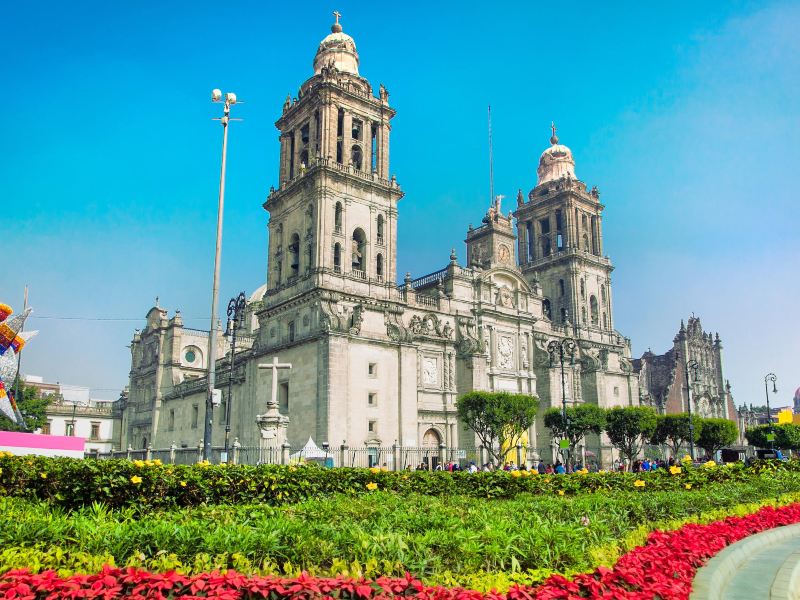
As globalization deepens, Mexico has emerged as a new hotspot for foreign investment, garnering global attention. Praised for its robust economic growth, young labor market, foreign investment-friendly government policies, and active economic reforms, this handbook aims to provide comprehensive guidance for human resource managers in establishing factories in Mexico. It covers key knowledge and strategies needed, from understanding the economic environment to cultural adaptation, employee management, and compliance requirements, assisting businesses in smoothly launching operations in Mexico.
1.Detailed Analysis of Mexico’s Economy and Investment Policies
Economic Characteristics: Mexico, the second-largest economy in Latin America and the fifteenth globally, is significantly bolstered by manufacturing, particularly in automotive and electronics. The manufacturing sector has maintained an average growth rate of 3-4% in recent years.
Foreign Investment Policy: Mexico is open to foreign investment, especially in manufacturing and high-tech sectors, offering tax reductions and financial subsidies, particularly in inland and border areas.
2.Insights into the Mexican Labor Market and its Characteristics
Labor Costs and Skills: Average wage levels in Mexico are lower than developed countries but higher than many other developing nations. For instance, the average hourly wage for manufacturing workers is about $4-6.
Recruitment Channels Explained: Online platforms (like OCC Mundial and LinkedIn) and university campus recruitment are primary channels. Industry associations and vocational training centers are also key talent sources.
3.Mexican Labor Law and Compliance
Labor Regulations: Mexican labor laws stipulate working hours (not exceeding 48 hours per week) and at least 15 days of paid annual leave. Strict regulations on labor contracts and terminations are also in place.
Compliance Practices: Regular communication with local legal advisors is crucial to ensure company policies and procedures align with the latest labor regulations.
4.Effective Cross-Cultural Communication and Management
Cultural Adaptation Training: Enhance understanding of Mexican culture among employees, especially differences in work habits and communication styles. For instance, Mexicans value face-to-face communication and relationship building.
Diverse Team Integration: Promote integration among employees from different cultural backgrounds through team-building activities and workshops, emphasizing the importance of teamwork.
5.Key Considerations for Factory Construction and Site Selection
Site Selection Strategy: When choosing a location, consider infrastructure (such as transport, electricity, and water resources) and local government support. Northern border cities like Tijuana and Reynosa are popular industrial investment locations due to their proximity to the U.S.
Safety and Environmental Standards: Mexico has strict regulations on factory safety and environmental protection. For example, factory emissions and wastewater treatment must meet national environmental standards.
6.Comprehensive Employee Training and Development Plans
Training Program Design: Tailor training plans for different positions and levels, especially technical and management training. For example, provide machinery operation and safety training for production line workers.
Performance Management and Career Development: Establish clear performance evaluation standards and promotion paths to encourage professional growth. For instance, offer internal promotion opportunities and additional professional training.
7.Compensation and Benefits Management Strategies
Salary Structure Design: Develop a fair and reasonable compensation structure in line with Mexico’s industry standards and cost of living. For instance, formulate competitive entry-level wages and performance bonus plans.
Benefits Plan: Provide basic medical insurance and retirement plans, along with other benefits like meal subsidies and transportation allowances.
8.Utilization of EOR and Payroll Outsourcing Services
EOR Service Advantages: For businesses new to the Mexican market, EOR services simplify recruitment and HR management processes, allowing employment without establishing a legal entity.
Payroll Outsourcing: Outsourcing ensures timely payroll disbursement and compliance, such as using local accounting and HR service providers for payroll and tax matters.
This handbook provides a comprehensive analysis of Mexico’s economic environment, labor market, legal compliance, and cultural features, offering extensive information and practical advice to help HR managers make informed decisions during the factory establishment process. From site selection to employee management, compliance, and cultural integration, our goal is to ensure that businesses can effectively adapt to the Mexican market environment for long-term and sustainable success. Mexico, a vibrant and opportunistic market, is an ideal choice for businesses ready to explore new territories.